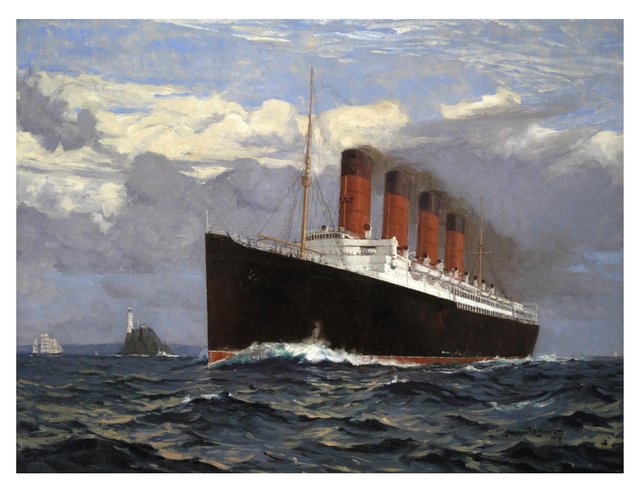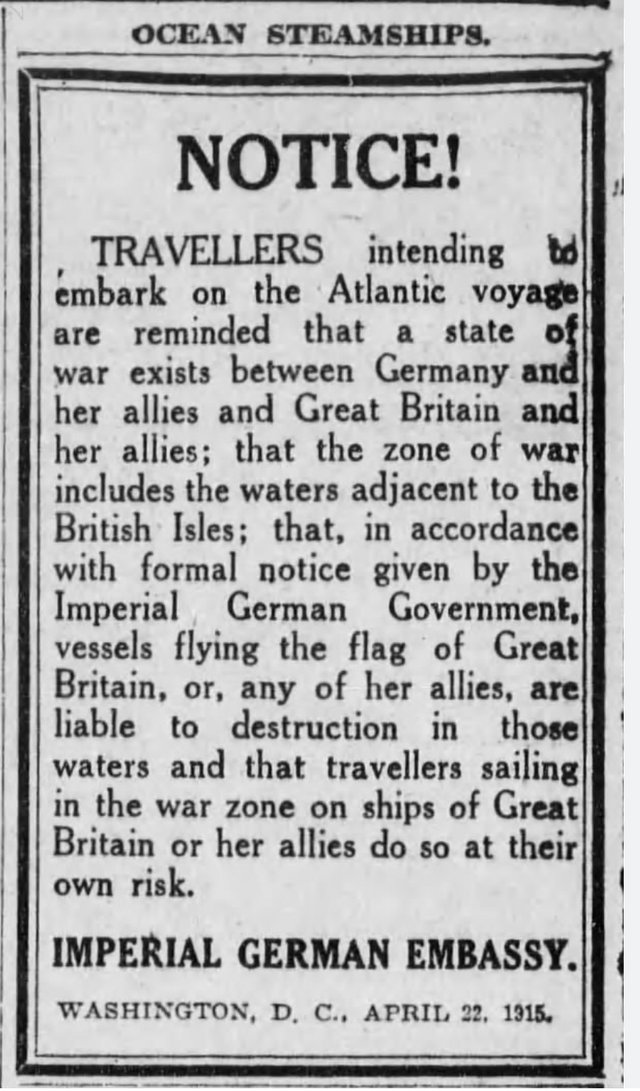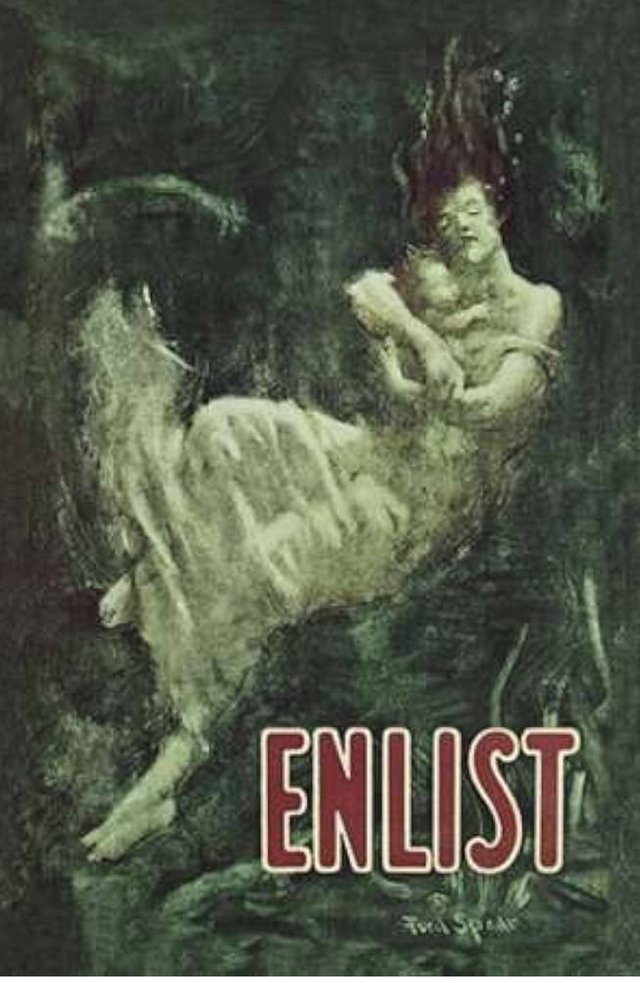The Ship That Sank the Truth: Lusitania, House, and the War for Your Soul
The Ship That Sank the Truth: Lusitania, House, and the War for Your Soul
#I remember a lot from when I was very young , I had a lot of great Aunts and Uncles and very old cousins. I knew people who “Remembered the Maine” and the Kidnapping of the Lindbergh Baby, and a lot of folks who fought in WW1, and I can guarantee you that none of the knew what I am about to share with you now.
A Tragedy with Geopolitical Tremors
On May 7, 1915, the British luxury liner RMS Lusitania was torpedoed by a German U-boat off the coast of Ireland, sinking in just 18 minutes.1 Nearly 1,200 people lost their lives, including 128 American citizens.2 The attack shocked the world. In the United States, it galvanized public sentiment, sowing the seeds for U.S. entry into World War I two years later.
Behind the headlines lay deeper geopolitical motives. Figures like Colonel Edward Mandell House, President Wilson’s closest advisor, and elite financial interests such as J.P. Morgan & Co. played key roles in leveraging the tragedy for a broader agenda.
Colonel House and the Financial Web
Colonel House held no official office, yet wielded tremendous influence over Wilson’s foreign and domestic policies.3 He was deeply connected to both British leadership and American financiers. J.P. Morgan had been appointed the official purchasing agent for the British government, and his firm issued more than $3 billion in loans and contracts to the Allies.4
These entanglements created pressure to ensure an Allied victory. Britain was nearing bankruptcy, and a German victory would have spelled financial disaster for American banks. House, in early 1915, was already in London making secret commitments on Wilson’s behalf,5 promising American support if Germany refused to negotiate.
The Lusitania’s Hidden Cargo and Strategic Risk
Unknown to the public at the time, the Lusitania was carrying millions of rounds of ammunition and other war materiel—contraband under international law.6 Germany had warned of this and even placed notices in American newspapers.
Yet when the ship entered the war zone, it was left unescorted by the British Admiralty. Historians have since uncovered documents suggesting that officials like Winston Churchill considered the potential political benefit if an American ship were lost to a U-boat attack.7
House was in London the very day the Lusitania sank, and he recorded a meeting that morning in which the possibility of such a sinking was openly discussed.8 Later that day, the news arrived—Lusitania had gone down, and House immediately sent a telegram urging Wilson to abandon neutrality.
From Tragedy to War
The outrage over the Lusitania was soon channeled into public support for military buildup. The emotional propaganda campaign that followed featured dramatic posters and appeals to enlist.
Though America would not declare war until April 6, 1917,9 the groundwork had been laid. House and his allies, including pro-British media outlets and banking giants, used the tragedy to shape public opinion.
Biblical Reflection: The Folly of False Peace
Scripture gives us clear warning against trusting the schemes of man, no matter how noble they appear:
“Cease ye from man, whose breath is in his nostrils: for wherein is he to be accounted of?” — Isaiah 2:22
“Thus saith the Lord; Cursed be the man that trusteth in man, and maketh flesh his arm, and whose heart departeth from the Lord.” — Jeremiah 17:5
“For there is nothing covered, that shall not be revealed; neither hid, that shall not be known.” — Luke 12:2
“Peace I leave with you, my peace I give unto you: not as the world giveth, give I unto you. Let not your heart be troubled, neither let it be afraid.” — John 14:27
“There is a way which seemeth right unto a man, but the end thereof are the ways of death.” — Proverbs 14:12
Men like House and Churchill promised peace but sowed war. They claimed to defend liberty while negotiating in secret and fueling death. Their plans were built on lies—and yet, not one of those lies escapes the sight of God.
Footnotes
[1] Lusitania sinking details from The Lusitania Resource and maritime archives.
[2] American fatalities and passenger figures widely confirmed by maritime historians.
[3] House’s role as advisor detailed in Yale’s Edward M. House Papers.
[4] J.P. Morgan's financial support for Allies detailed in Ron Chernow’s The House of Morgan.
[5] House-Grey Memorandum records from British Foreign Office archives.
[6] Munitions confirmed by divers and post-war British records.
[7] Churchill’s Feb. 1915 letter quoted in Politicians at War, Hazlehurst.
[8] House diary, May 7, 1915 – discussion with Sir Edward Grey.
[9] U.S. declaration of war: Congressional Record, April 6, 1917.


